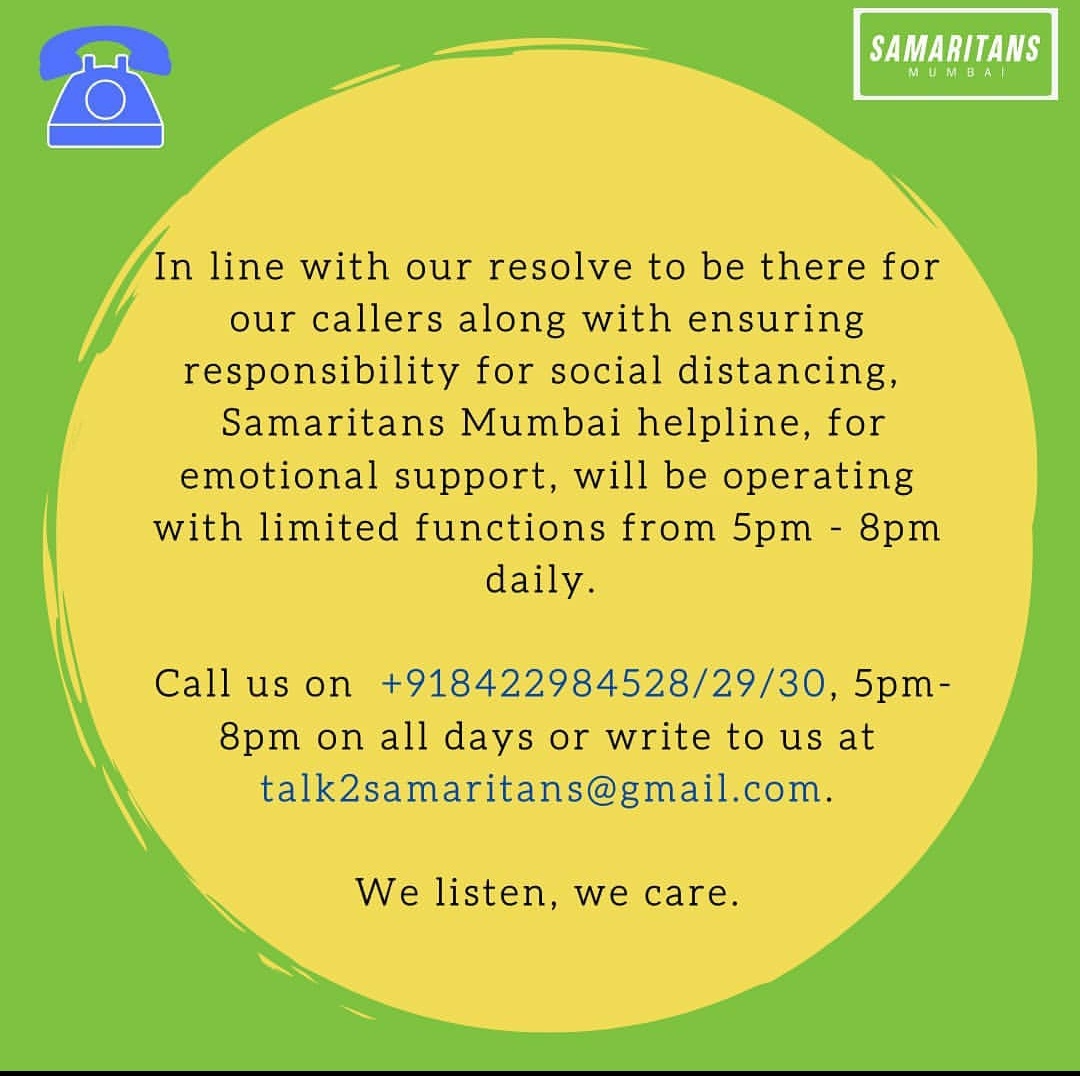
We Listen, We Care- Let us do it Together
It’s been observed that an increase of suicides in different cities has rocked the country over the past few days since the coronavirus outbreak. There were reports that some took there lives as they were scared and stressed, while others felt they might have had came in contact with this virus.[1]
In these trying times where the whole world is at a stop, mental health specialists also recommend that we should come together in spirit and support each other. whenever we feel like it, we should reach out to people with whom we are most comfortable. They also recommend that we all should genuinely talk about ourselves and ask about how the other person is doing now since the lockdown has extended. When we are listening to someone and there is something that makes us awkward and even if we don’t know what to say, we can always acknowledge what they are saying and encourage them to open up. When listening, we must always do it empathetically.
Empathetic listening is a great way of listening and responding to another person that improves mutual understanding and trust. It has empowering qualities, providing an opportunity for people to talk through their problem may clarify their thinking as well as provide a necessary emotional release. The ability to listen with empathy may be the most important attribute in the world right now.
Madelyn Burley-Allen[2] offers these guidelines for empathic listening:
- Be attentive. Be interested. Be alert and not distracted. Create a positive atmosphere through nonverbal behaviour.
- Be a sounding board — allow the speaker to bounce ideas and feelings off you while assuming a nonjudgmental, non-critical manner.
- Don’t ask a lot of questions. They can give the impression you are “grilling” the speaker.
- Act like a mirror — reflect back what you think the speaker is saying and feeling.
- Don’t discount the speaker’s feelings by using stock phrases like “It’s not that bad,” or “You’ll feel better tomorrow.”
- Don’t let the speaker “hook” you. This can happen if you get angry or upset, allow yourself to get involved in an argument, or pass judgment on the other person.
- Indicate you are listening by
- Providing brief, noncommittal acknowledging responses, e.g., “Uh-huh,” “I see.”
- Giving nonverbal acknowledgements, e.g., head nodding, facial expressions matching the speaker, open and relaxed body expression, eye contact.
- Invitations to say more, e.g., “Tell me about it,” “I’d like to hear about that.”
- Follow good listening “ground rules:”
- Don’t interrupt.
- Don’t change the subject or move in a new direction.
- Don’t rehearse in your own head.
- Don’t interrogate.
- Don’t teach.
- Don’t give advice.
- Do reflect back to the speaker what you understand and how you think the speaker feels.[3]
[1] https://gulfnews.com/world/asia/india/the-human-cost-of-indias-coronavirus-lockdown-deaths-by-hunger-starvation-suicide-and-more-1.1586956637547
[2][2] Madelyn Burley-Allen, Listening the Forgotten Skill, (John Wiley & sons, 1982). Burley-Allen is a former president of the American Listening Assn
[3] https://www.beyondintractability.org/essay/empathic_listening





